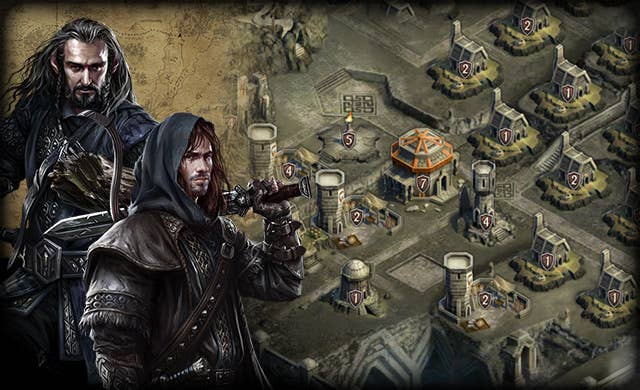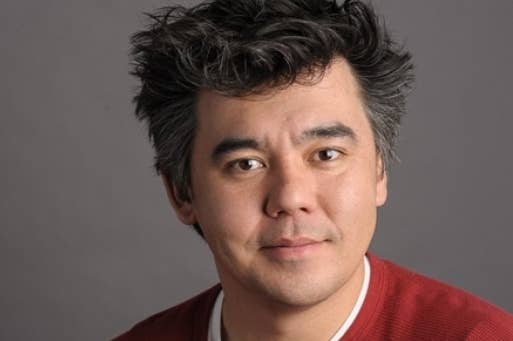F2P the “most democratic form of development” - Kabam
Andrew Sheppard, president of Kabam Studios, talks about the industry's transition to F2P and its fear of the business model
For the past few years, as the free-to-play business model has taken hold, the rallying cry from core gamers and certain developers has been loud and clear. It's manipulative. It's deceptive. It's just plain evil. There are plenty of others, however, who believe that F2P can be leveraged not only for their benefit, but also for the benefit of gamers. Needless to say, Kabam falls into this camp.
At the recent D.I.C.E. Summit, GamesIndustry International sat down with Kabam Studios president Andrew Sheppard to talk about the industry's continued growing pains with F2P. Sheppard refutes the notion that F2P companies are only looking to extract as much money as possible from the so-called "whales." He believes that the transition to F2P has been painful because so much of the traditional industry has been set in its way for a very long time now.
"What many of the people who are naysayers of F2P have not seen is the first real transition for gaming, which was the transition in business models from coin-op to console retail. This is the first time that the business model has changed in the industry for 15-20 years. And that's a big change," Sheppard said. "So what you're seeing is that people who've become the best at what they do - whether it's development of console games or marketing of console games, or distribution of console or PC games - they are seeing this new form emerge. Our position at Kabam is, sure, just like at retail there are abuses that publishers and developers can pursue but our position is that F2P is the most democratic form of development."
"I do think that there is a fear about it because the model is so different. I think that's the elephant in the room that people aren't talking about"
Sheppard sees the development of F2P titles as more akin to television programming. "You're constantly testing out pilots and building entire seasons and changing the narrative arc to fit the feedback and to drive the ratings; you're in essence feeding into what the customers want. The difference between what we do and what television is all about is we can make those decisions on a daily basis, on a monthly basis or a quarterly basis. So I actually feel it's the most democratic form of game development and I don't think there's an evil element to it whatsoever," he insisted.
"I do think that there is a fear about it because the model is so different. I think that's the elephant in the room that people aren't talking about. Empirically we know that F2P gaming is the fastest growing category, so consumers are choosing it both in terms of users and dollars. So it feels like having a position opposed to that market reality suggests something else than it being an evil."
The last serious business model change, from coin-op to consoles, ended up becoming a permanent one. For all intents and purposes, the arcade is dead. Is it possible that the rise of F2P could lead to the demise of the standard paid model? That's unlikely, but Sheppard does see F2P becoming dominant, partially because of the economics of AAA games and because many mature adults are finding less and less time to play the long, epic console or PC titles.
"As a company we're cautious about forward looking statements because the market is so dynamic. Just looking at history, it is the first time that you're seeing platform and business model changes happening concurrently and we're seeing an expansion of gaming audience coupled with massively steep adoption curves on these smartphone and tablet gaming devices," Sheppard remarked.
He continued, "I'm a hardcore gamer, I love AAA games... frankly, I just don't have time to play everything, but what I find myself doing more often than not is I'll watch TV, talk with friends and simultaneously I'll play a game on my mobile phone. I want something that's entertaining and complementing what I'm doing in the background. I want to be able to stop, pay attention to the show and then switch back when there's an ad. I don't even use my DVR - I prefer to replace the action of fast forwarding with playing on my mobile phone. I think we're really redefining the definition of gaming. I think there will be a place in the home for AAA packaged product gaming but over time it'll change."

The other advantage of F2P, Sheppard said, is that it allows consumers to select and influence the best products on the market.
"[CEO] Kevin [Chou] and I talk about this and believe this very much - consumers' expectations for what they get for every dollar spent on a game is growing. That $60 console SKU now takes a thousand people to build and people want not only ridiculous fidelity and immersive gameplay experiences but they also want tons of hours of gameplay. Part of the reason why F2P is so democratic is you give away your game for free and the market only gives you money back if they like it. So in that regard, you're expanding the pie, you're giving people content for free and there are so many people doing that that after a certain while only the best games rise to the top," he argued.
As F2P, and digital in general, become more prevalent, a blurring of the platforms is starting to take place. While F2P has been tried on consoles, to date there are no massive success stories. Perhaps Kabam will seek to change that?
"I definitely agree that platforms are blurring; gamers, more importantly, are sliding between platforms to fit their life. When you have time at home alone, console. When you have a lot of time, maybe PC and an RPG. And if you have less time and you need to be somewhere, then mobile gaming or maybe tablet gaming if you're in the bedroom. For us, we think about game development as, 'Is there an audience that has interest in the franchise? And does the use case and the interaction model fit?' As the platforms change, how can that franchise fit? And it doesn't necessarily fit in all situations," Sheppard said.
"Business and gaming in general is littered with stories of the aggressive acquirer that brings a team in and doesn't do a great job of integrating them"
While Kabam's focus has been on mid-core, shorter session gameplay, the company could be going deeper, but it's not clear if it'll be on consoles. "We have newer games coming out in the next year or two that would better fit what you're talking about, which is more interactive and more immersive gameplay, higher production values, more broad use case - not just the five minutes on the phone," Sheppard acknowledged.
Another major difference between the console world and the mobile F2P space is that licensed properties have largely been a bust on consoles, but they've seen success on mobile. EA, Activision and other companies have clearly backed away from licensed games, but Kabam has embraced them and profited from them to boot.
"Every game company prides itself on its ability to create original IP. We dedicate a significant amount of our R&D budget to that, an increasing percentage actually. However, the licensed games are a unique opportunity," Sheppard said. "Our creative teams actually relish the opportunity to work on licensed titles like The Hobbit or The Godfather or Fast and Furious 6. You're talking about multi-billion dollar franchises that are of global relevance and appeal. What is different about the way we work with those folks from, say, the traditional game companies and the way they've approached licensed products is we really look to extend the universe, and oftentimes we'll tell a complementary story but we won't tell the main story of the movie. This affords us a great deal of flexibility that gets the teams excited about the project, but it also makes the rights holder feel good about what we're doing because we're increasing the engagement with, and the depth of, the universe."

He added, "Part of my belief as to why the console licensing business doesn't work very well is you're dealing with very complex development methodologies that ultimately go up against a ship date, and when push comes to shove you've got to ship on time. In our space we have that same constraint, but because F2P is much more about building a blueprint for the game first and then driving innovation within that blueprint, as opposed to traditional where it's 'let's come up with innovation and find a way to make the blueprint make sense,' more often than not you end up being able to [succeed]."
Ultimately, whether it's licensed or original IP, the relationship with the customer is paramount. If you try to sell them on garbage, you'll only get it thrown back at you.
"Our internal drive is to totally break the cycle that consumers have come to believe about licensed products, which is that they are not good titles. We can't [make bad titles] because these are service-based products, like The Hobbit which has been growing for 12 months and continues to grow. It's one of the fastest ramping games in our portfolio. You have to maintain trust with the consumer, you have to deliver a great game," Sheppard stressed.
Looking at the F2P business and Kabam's last 12 months, we can't help but think that the next 12 will be kind to the growing company, which appears to be "seriously considering" an IPO. Zynga's recent move to acquire the talented folks at Natural Motion could put pressure on competitors like Kabam, but the company isn't done with M&A either, it would appear.
"We are always looking for good talent and great games... we have done some M&A over the last year. And what you'll see from Kabam over the next year is we'll continue to do that but only in places where we believe in the product, we believe in the team and we see great cultural congruity between the two parties," Sheppard said. "Business and gaming in general is littered with stories of the aggressive acquirer that brings a team in and doesn't do a great job of integrating them. In their defense, it's incredibly hard to do M&A work and really make it hum, but we've had a great track record and we hope to keep that going. We're very aware of where we need to improve and grow. So I think you'll some big things from us over the next 12 months."

